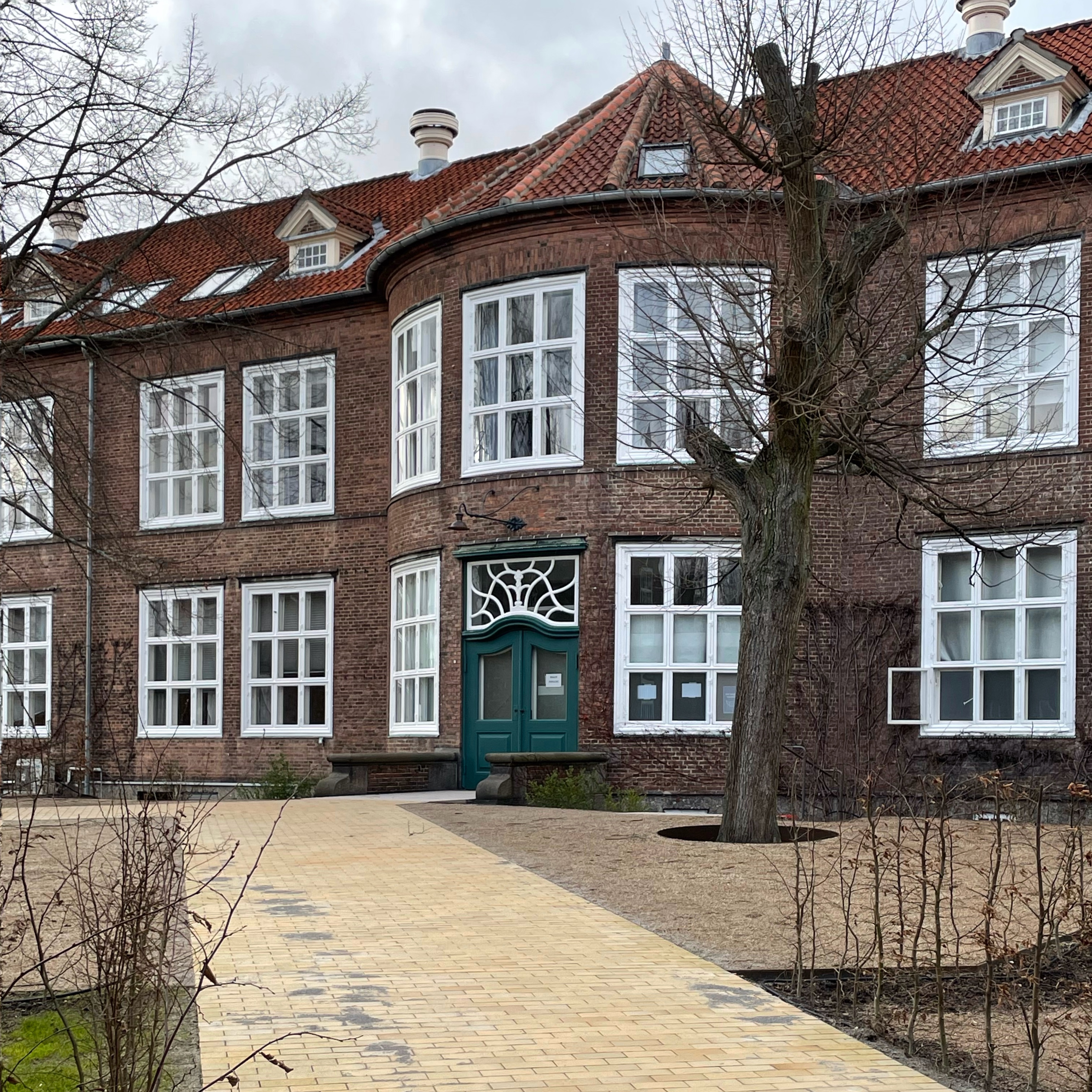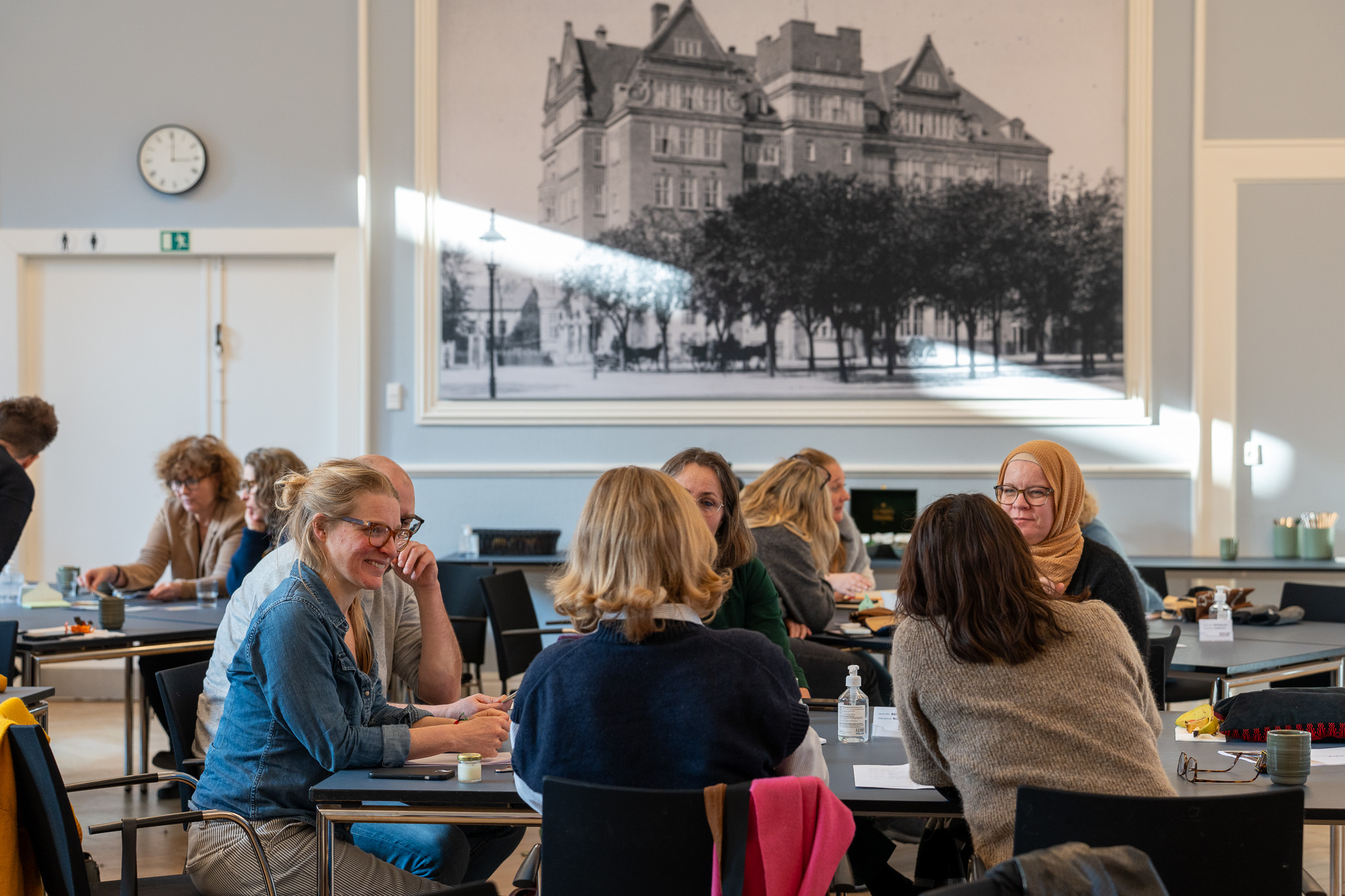
Anthology introduces universal design as an interdisciplinary discipline in Denmark

The Bevica Foundation's research network introduces universal design as an interdisciplinary discipline in Denmark. The anthology “Universal Design — Interdisciplinary Perspectives in Theory and Practice” appeared on June 1, 2023.
Editorial Board: Anne Kathrine Frandsen, Leif Olsen and Inge Bonfils
In Denmark, universal design is best described and most widely used in architecture, design and product development. This will be discussed in the anthology “Universal Design — Interdisciplinary Perspectives in Theory and Practice”. The anthology is written and edited by the interdisciplinary research network under the Bevica Foundation's Universal Design Hub partly as an introduction to universal design in a Danish context, and partly as a cementation of the fact that universal design as a principle crosses a wide range of disciplines: pedagogy, management, communication, policy development, job design, IT and much more. And that is exactly what is needed, says Camilla Ryhl, Director of Research at the Bevica Foundation.
Universal design is more than architecture — it's a new way of thinking
Universal design is about seeing the world with new glasses
- Camilla Ryhl, Research Director, Bevica Foundation
“Universal design, as a multidisciplinary and value-based concept, represents an opportunity to see the world in a new way and ask the right questions before embarking on a task in a particular discipline, so as to bring in as many people as possible from the start — no matter what task you have to solve,” she says.
If you are, for example, a teacher or educator and working with children, the universal design principle can help to make visible any blind spots in relation to how you really understand, for example, a child with a disability or a diagnosis. The same could be true in management. In IT and communication, it can help to make some users visible that you would otherwise forget.
“Universal design is about seeing the world with new glasses. When designing or building, it's about creating equal solutions that everyone can use regardless of functional ability. The same is true in other disciplines, although the solutions are not necessarily physically visible,” says Camilla Ryhl.
New anthology shows the way to a more inclusive society
The anthology is the latest step in the lineage of the Bevica Foundation's Universal Design Hub, which aims to provide knowledge about universal design across a wide range of disciplines, and that is precisely what is important, says Marianne Kofoed, the Foundation's Director. “The anthology is important for the Bevica Foundation because we believe that if we succeed in implementing universal design at all levels of society, we are one step closer on the fact that people with disabilities can have an active and equal life as others without disabilities. The many professionals who have provided knowledge to the anthology show that universal design can be the positive tool and prism to use when shaping the society of the future.”
The book can be purchased or read as an e-book at Aalborg University Publishing House
Read Research Director Camilla Ryhl's 4 tips on getting started with universal design at Insider Impact
Read more about Bevica Foundation's multidisciplinary research network
Editors
- Anne Kathrine Frandsen, Senior Researcher. Aalborg University
- Barbara Nino Carreras, PhD student, IT University of Copenhagen
- Camilla Ryhl, Research Director. Bevica Foundation
- Dagny Valgeirsdottir, Assistant Professor, DTU Skylab
- Emil Ballegaard, PhD student, Royal Academy
- Emil Falster, Postdoc, Aalborg University
- Eva Brandt, Professor, Design School Kolding
- Frederik Gybel Jensen, PhD student, University of Copenhagen
- Inge Storgaard Bonfils, Docent, University College of Copenhagen
- Jesper Holten, Executive Committee Member, Danish Blind Society
- John Paulin Hansen, Professor, DTU
- Kristian Moltke Martiny, Partner & Head of Research, Enactlab S/I
- Leif H. Pedersen, PhD student, Roskilde University
- Leif Olsen, Senior Researcher, VIVE
- Marcus Tang Merit, PhD Student, Royal Academy
- Marie Gramkow Christoffersen, Assistant Professor, University of Copenhagen
- Masashi Kajita, Assistant Professor, Royal Academy
- Roberta Cassi, PhD student, Royal Academy
- Signe Mårbjerg Severin, PhD student, Design School Kolding
- Thomas Bredgaard, Professor, Aalborg University
- Thomas Skovgaard, Associate Professor, SDU
- Turid Borgestrand Øien, Postdoc, Aalborg University
- Ulrika K. Stigsdotter, Professor, University of Copenhagen
More knowledge about Universal Design
Explore the Bevica Foundation's Knowledge Library
Latest News
Follow the latest news from the Bevica Foundation below.





